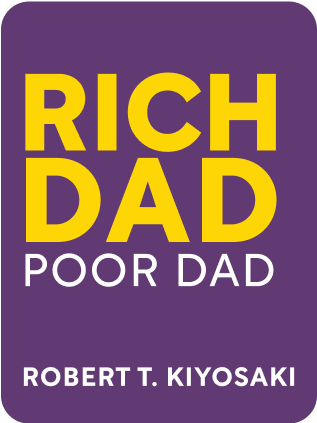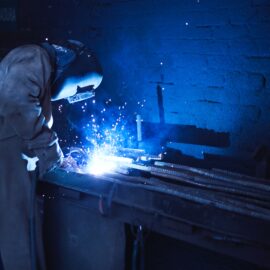

This article is an excerpt from the Shortform summary of "Rich Dad Poor Dad" by Robert T. Kiyosaki. Shortform has the world's best summaries of books you should be reading.
Like this article? Sign up for a free trial here .
What does it mean to pay yourself first? How can paying yourself help you build wealth?
The definition of “pay yourself first” means to invest in assets and other strategies that can help generate wealth, BEFORE paying your bills. The idea of “pay yourself first” will help create more wealth in the long and short term.
Why Should You Pay Yourself First?
Most people work 40+ hours a week to earn salaries. Many then take their earnings to 1) buy stuff they think will make them happy (but this is short-lived), 2) save the remainder in a conservative way. But instead of this method, you can pay yourself first.
While this ensures some degree of stability, it doesn’t make you rich. And working to earn a pension makes you financially dependent – let alone the risk that pensions won’t be funded decades from now, when you need it.
The counter-intuitive lesson here is this: the rich don’t get rich merely by being paid higher salaries (though this is a great help). They get rich so by owning things. No one on the Forbes billionaire list got there purely with a salary.
(As tech investor Sam Altman says, “You get truly rich by owning things that increase rapidly in value. This can be a piece of a business, real estate, natural resource, intellectual property, or other similar things. But somehow or other, you need to own equity in something, instead of just selling your time. Time only scales linearly.”)
When you work for an employer, you get paid only a fraction of the value that you generate for the employer (otherwise, if the business would go bankrupt). Say your salary is $50k a year. Your work may allow your employer to earn $100k in sales that year, yielding a clean profit after deducting your salary. This offers less opportunity for profits, and increases your need to always pay yourself first.
- Even further, if your work isn’t just a pure service but also builds value in the company – say in R&D or product improvement – the value may be many multiples of your salary.
The key to financial independence is having money that makes more money. You want your money to make enough money that you don’t have to work anymore.
Pay Yourself First
So what is the pay yourself first definition? Most people have the habit of paying their bills first, then saving whatever money is left.
Rich Dad inverted this – he bought assets first, then paid his bills as late as possible. His reasoning – the threat of having bill collectors was supremely strong motivation to creatively find ways to make more money.
In contrast, paying yourself last gives little pressure to generate more money. So you should adopt the pay yourself first principle.
Get Assets
If you’re going to always pay yourself first, you need to focus on finding assets. So what are real assets?
- Businesses that don’t require your presence. You own them, but they’re managed by other people. If you have to work there for it to generate money, it becomes your job.
- Only start a business if you have a desire for it. The odds are against you and the stress is high. You don’t have to make money this way.
- Stock, bonds, funds, and other securities.
- Kiyosaki once liked tax liens, which he claims returned 16%, but says since then more attention has made this less profitable.
- Income-generating real estate. In particular:
- Using debt to lever up on more houses. In other words, with $500k, you could buy one $500k house and use it to make income. Or, you could pay $100k down payments for 5 houses and get rental income from 5 houses.
- (Shortform caveat: note that with more leverage, if the houses lose value, you also magnify your losses, as in the 2008 recession.]
- Buying under-market properties, like from foreclosures, and reselling them quickly.
- Kiyosaki notes that today foreclosures are competitive and he’s looking elsewhere.
- Using steady cash flow from rental income to make riskier bets, like in the stock market.
- Consider buying property that’s larger than what you need. Then sell off a piece to someone else. This will let you broaden the opportunities you find.
- When selling a property, trade it for a larger one to avoid immediate taxes on the gain. (Section 1031)
- Using debt to lever up on more houses. In other words, with $500k, you could buy one $500k house and use it to make income. Or, you could pay $100k down payments for 5 houses and get rental income from 5 houses.
- Notes (IOUs).
- Royalties from intellectual property such as music, scripts, patents.
- Anything that has value, produces income, appreciates, and has a ready market.
(Shortform note: Rich Dad, Poor Dad contains lots of (possibly embellished) examples of super-profitable real estate deals. Unfortunately the book doesn’t cover how to find or generate valuable assets, which is a much more complicated topic and specific to the industry.)
Think about each dollar as your employee that works 24 hours a day tirelessly to make you more money. How can this help you always pay yourself first?
The tradeoff between today’s expenses and future income should be clear. Every dollar you spend today is a dollar that does not work for you again, in perpetuity.
Further, avoid situations where you have to dip into savings or investments. Find creative ways to come up with the money, and protect your assets, always using the pay yourself first definition.
Achieving Financial Independence
The pay yourself first principle can help you make money that leads to financial independence. You might have the goal of financial independence, which is to no longer be dependent on your wages. Ideally, you can live forever off of the extra income your money generates – you make more money doing nothing than you consume.
The basic steps for financial independence are:
- Figure out how much money you need per year to survive.
- Figure out how much in assets you need, to generate a return that exceeds the first number (after taxes and expenses).
- Acquire assets that return that amount.
Even if your goal isn’t financial independence, these are still good principles of how to get the best return for your money. The pay yourself first principle is a part of how that can happen while you’re working for a salary.
So it’s that simple. But simple doesn’t mean easy. The major blocks are:
- psychological, where people fear the risk of higher-returning assets
- tactical, where people don’t know how to execute well
The rest of this Rich Dad, Poor Dad summary covers both obstacles.
The concept of “pay yourself first” is now widely shared, but Rich Dad’s method is risky. You can pay yourself first quickly by investing in assets that will rapidly make money.

———End of Preview———
Like what you just read? Read the rest of the world's best summary of Robert T. Kiyosaki's "Rich Dad Poor Dad" at Shortform .
Here's what you'll find in our full Rich Dad Poor Dad summary :
- The key differences in how rich dad and poor dad approached life
- Why it's a terrible idea to buy an expensive house
- How to overcome your own mental blocks to become wealthy for life






